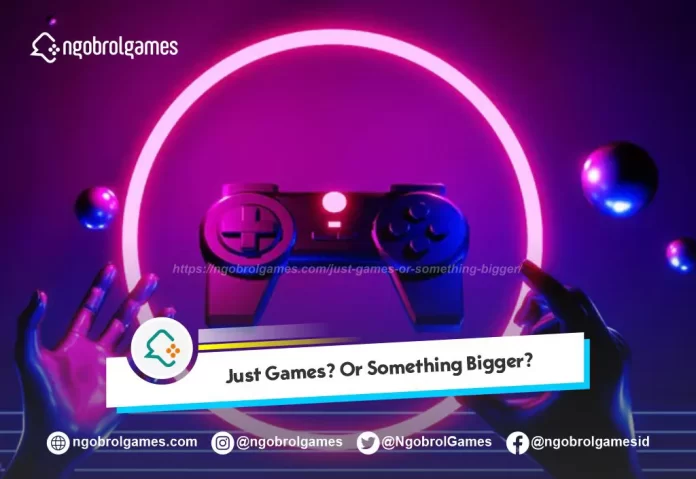Ngobrol Games – Call it fun. Call it habit. Call it survival after a long day. Games—whatever form they take—are how people reset. You press start, and suddenly you’re not just “you after work.” You’re moving. Reacting. Laughing. Or maybe just zoning out in a good way. Doesn’t really matter. It works.
The Tap-and-Go World
Not everyone loads up a console. Some just open their phones. Maybe it’s a quick run through a puzzle. Maybe it’s a spin on a ѕꓲоtѕ ցаmе they’ve played a hundred times before. Maybe it’s just sound and color, something that doesn’t ask too much. Whatever it is, it’s familiar. And it lets the brain breathe.
Why Games Stick
They’re not static. You touch. You change something. And they change with you. That’s more interaction than most people get in a work meeting. Or in their inbox.
Here’s why people keep showing up to the same game over and over:
- They know what to expect—and that’s comforting
- Small wins feel big when your day had none
- No one’s watching. You get to mess up, laugh, restart
- You don’t need a plan. Just open and play
- Your brain goes from “worry” to “focus” without even trying
- It’s play—but with rules. Some people need that
What People Are Actually Playing
Forget the hype about “hardcore gamers.” Most people are just doing what feels easy tonight. Some play with one hand while eating. Some only play while something’s buffering. Some take it seriously. Most don’t.
Popular types:
- Puzzle games – drag, drop, done. Great for silence.
- Story-based games – slow, chill, good for escaping.
- Building sims – quiet control, low stress.
- Shooters and action – when you need noise to match your brain.
- Online party games – because laughing with friends is rare lately.
- Idle clickers – for people who want progress without pressure.
It’s Not Just Escaping
Yes, some people use games to tune out. But for others, it’s tuning in. Into something that makes sense. Something with levels, with scores, with music that never yells at you. That’s not distraction—that’s recovery.
What games give that Netflix doesn’t:
- Feedback
- Agency
- Focus
- Space to fail
- A feeling of “I did something,” even if it’s virtual
The Weird Therapy of It
Games can calm nerves. Give routine. Build habits. Let emotions out in weird ways. Like rage-quitting, sure—but also like finally winning after 10 tries. Or customizing a silly avatar that looks nothing like you but feels right.
Some people meditate. Others build farms in pixelated worlds. Both work.
What Goes Wrong Sometimes
Of course, it’s not perfect. Some people stay up too late. Some get stuck on pay-to-win traps. Some compare scores too much. It happens. But that’s not games being evil—it’s just… balance gone sideways.
Stuff to watch out for:
- Playing instead of sleeping
- Playing instead of talking
- Spending real money without thinking
- Getting mad at people over fake fights
- Forgetting to move
- Using it to avoid stuff for too long
Games don’t cause problems. But they can hide them if we let them.
The Bigger Picture
Games aren’t going away. They’re not “just for kids.” They’re language. They’re connection. They’re quiet. They’re chaos. They’re how a lot of people deal with now. And honestly? That’s kind of beautiful.
You log in. You do something simple. You feel… less heavy. Maybe not forever. But for now? Enough.

